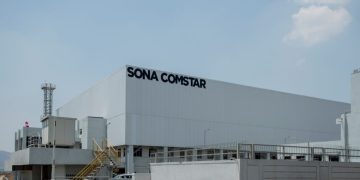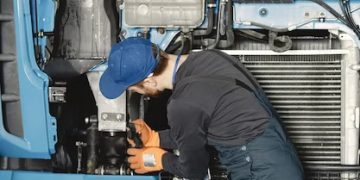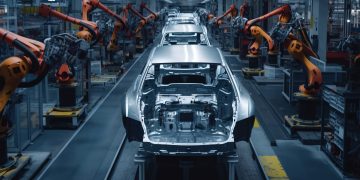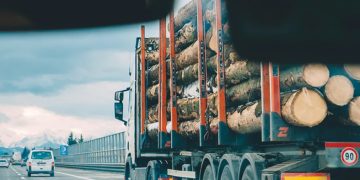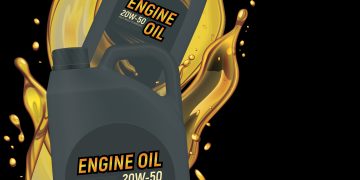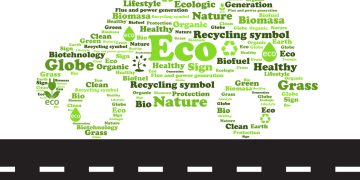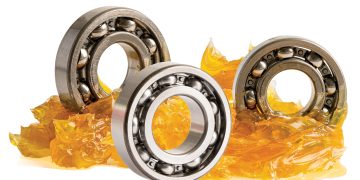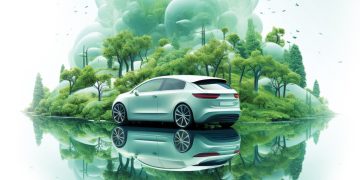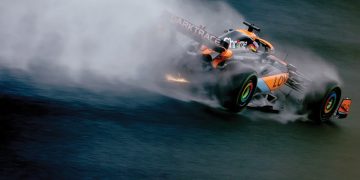Advanced coatings play a crucial role in the automotive industry as they provide protection to various components of the vehicle and enhance their performance. Coatings are used to protect the vehicle’s exterior from corrosion, abrasion, and weathering. They are also used to enhance the appearance of the vehicle and make it more attractive to buyers. In addition, coatings are used to protect the vehicle’s interior from wear and tear, UV radiation, heat, and humid climate.
The Indian automotive coatings market is estimated to be the largest in the Asia Pacific region, with China being the second-largest market. The market is expected to reach US$24.2 bln by 2031 as published by Acumen Research and Consulting. BASF, a global leader of automotive coatings, has expanded its Coatings Application Centre in Mangalore to serve the Indian market.
Advanced coatings have brought numerous benefits to the automotive industry. These coatings have been designed to improve the performance, durability, and aesthetics of vehicles, while also reducing their environmental impact. There are various types of advanced coatings used in the Indian automotive industry, each with its own set of unique properties and benefits.
- Ceramic coatings are applied to the vehicle’s exterior to protect it from UV radiation, heat, and abrasion and enhance its appearance.
- Powder coatings are used to protect the vehicle’s components from corrosion and abrasion and create a durable, high-quality finish.
- Thermal barrier coatings protect the engine components from heat and improve its performance.
- Anti-fouling coatings protect the exhaust system and reduce emissions. These advanced coatings have become crucial in the automotive industry to enhance durability, performance, and aesthetics of the vehicles.
Recent Developments in Advanced Coatings in the Indian Automotive Industry
In recent years, there have been several developments in advanced coatings in the Indian automotive industry. One major trend is the shift towards eco-friendly and sustainable coatings, as the industry seeks to reduce its environmental impact. Manufacturers are investing in developing coatings that are water-based, low in VOCs, and use renewable materials. Some of the latest developments in this field are:
- Water-based Coatings has been developed to reduce the environmental impact of coatings. They are made from non-toxic materials and are easier to dispose of than traditional coatings.
- Self-healing Coatings has been developed to repair minor scratches and dents in the vehicle’s exterior. They contain microcapsules that release a healing agent when the coating is damaged.
- Conductive Coatings has been developed to improve the performance of electronic components in the vehicle. They are typically used in sensors, displays, and other electronic devices.
- Anti-reflective Coatings has been developed to reduce glare and improve visibility for drivers. They are typically used on windshields and side windows to reduce the amount of light that is reflected back into the driver’s eyes.
- High-temperature Coatings has been developed to improve the durability and longevity of components in the engine compartment. They are typically used on exhaust systems, turbochargers, and other high-temperature components.
- Scratch-resistant Coatings has been developed to protect the vehicle’s exterior from scratches and abrasions. They are typically made from hard, durable materials that can withstand impact and abrasion.
- Anti-corrosion Coatings has been developed to protect the vehicle’s exterior from corrosion caused by exposure to moisture and other environmental factors. They are typically made from materials that resist corrosion, such as zinc or aluminium.
- Optical Coatings has been developed to improve the optical properties of lenses and other optical components in the vehicle. They are typically used on headlights, cameras, and other optical devices to improve their clarity and performance.
Challenges and Limitations of Advanced Coatings in the Indian Automotive Industry
The Indian automotive industry faces several challenges and limitations in the adoption of advanced coatings. One of the main challenges is the slow adoption of new coating technologies due to high costs and limited availability. The coatings used on standard vehicles must last 10 years in service, which is not a trivial performance target to meet. Durability and cost are the biggest challenges to implementation of new coating technologies.
Another challenge is the need for coatings to meet sustainability requirements. The shift towards economical and sustainable metal coating solutions is likely to foster market share. The utilisation of automotive coatings on metal surfaces is anticipated to be fuelled by growing importance on protecting vehicle surfaces. The industry needs to focus on developing coatings that are environmentally friendly, lightweight, and cost-effective.
Skill Requirement for Advanced Coatings in the Indian Automotive Industry
Both education and training, as well as technical expertise, are important for professionals working with advanced coatings in the Indian automotive industry. To meet the demands of this industry, the following skills are essential for professionals working in the advanced coatings sector:
- Education and Skill Training: Professionals should have a strong foundation in materials science, chemistry, and engineering, typically acquired through a bachelor’s or master’s degree in a relevant field. In addition, specialised training programmes or certifications in coating technology can provide valuable knowledge and skills.
- Knowledge of Coating Chemistry: Professionals should have a deep understanding of coating chemistry, including the various types of coatings used in the automotive industry, their properties, and their application methods. This includes knowledge of resin types, curing agents, pigments, and additives.
- Surface Preparation Techniques: The success of a coating application depends on proper surface preparation, which involves removing dirt, oil, and other contaminants from the surface to be coated. Professionals should be skilled in various surface preparation techniques, such as sandblasting, chemical cleaning, and mechanical abrasion.
- Material Science Expertise: Professionals should have a thorough knowledge of material science and the properties of various coatings. This knowledge is crucial in selecting the right coating material for specific applications and ensuring that coatings are durable, long-lasting, and perform as intended.
- Technical Expertise: Professionals should have technical expertise in coating chemistry, surface preparation, application methods, quality control, health and safety, and continuous learning. They should have hands-on experience working with different types of coatings and equipment and be able to troubleshoot issues that arise during the coating process.
- Application Techniques: Professionals should be proficient in various coating application techniques, including spray, brush, and dip coating. They should also be aware of the different equipment and tools used in coating application and maintenance.
- Quality Control: Professionals should have a strong understanding of quality control principles and be able to conduct quality control checks to ensure that coatings meet the required standards. This includes understanding the different testing methods used to evaluate coating performance, such as adhesion, corrosion resistance, and hardness testing.
Job Opportunities in Advanced Coatings in the Indian Automotive Industry
With the increasing demand for advanced coatings, there are several career opportunities available for individuals with the required skills and expertise. Here are some of the career opportunities in advanced coatings in the Indian automotive industry:
- Coating Technicians: Coating Technicians are responsible for applying coatings to vehicles or vehicle parts using various coating techniques such as spray, dip, or brush. They must have knowledge of coatings, surface preparation, and application methods. Coating Technicians work under the guidance of Coatings Technologists/Engineers and must ensure that coatings are applied correctly and in accordance with established standards.
- Coatings Technologists/Engineers: Coatings Technologists/Engineers are responsible for developing and improving coating formulations to meet the demands of the automotive industry. They work to improve coating properties such as durability, adhesion, and corrosion resistance. They must have knowledge of materials science, surface chemistry, and coating technologies. Coatings Technologists/Engineers also work closely with Coating Technicians to ensure that coatings are applied correctly.
- Coatings Application Specialist: Coatings Application Specialists work with the coatings technologists to optimise coating application methods and parameters. They also work with production staff to ensure proper application of coatings.
- Quality Control Inspectors: Quality Control Inspectors ensure that the coatings applied to vehicles or vehicle parts meet the required specifications for quality, durability, and performance. They inspect coatings for defects and ensure that they meet the appropriate thickness, colour, and gloss levels. Quality control inspectors also perform adhesion and abrasion tests and use specialised equipment to measure coating properties.
- Sales and Marketing: Sales and marketing professionals promote and sell coatings to customers in the Indian automotive industry. They work to build relationships with customers and help them select the right coatings for their applications. Sales and marketing professionals also keep up-to-date on market trends and competitor activities to develop effective sales strategies.
- Research and Development: Research and Development professionals are responsible for developing new and innovative coating formulations to meet the demands of the Indian automotive industry. They work to improve coating properties such as durability, adhesion, and corrosion resistance. R&D professionals may also work to develop environmentally friendly coatings that reduce emissions and waste.
- Management: Management professionals oversee the entire coating process, from research and development to production and sales. They develop strategies to improve efficiency, reduce costs, and increase profitability. Management professionals also provide leadership and direction to staff and ensure that all operations comply with regulations and standards.
Future Outlook
As the industry continues to grow and evolve, the demand for coatings with enhanced properties, such as durability, corrosion resistance, and eco-friendliness, is expected to increase. The current trends in automotive coatings in India are driven by the growing automotive industry, increasing demand for the automotive refinish sector, and the Make in India programme. The functional coatings market is also expected to witness significant growth due to increasing demand from end-use industries, including automotive. The growth for the automotive coatings segment is high as new and innovative technologies are being developed by automotive coating producers.



































